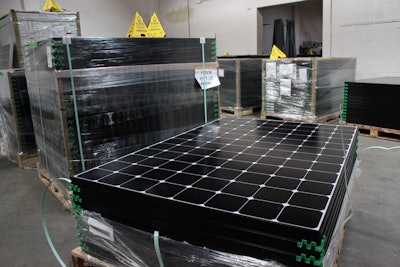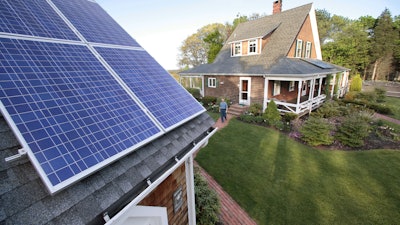
Thousands of homeowners and small businesses in New Mexico — the second sunniest state in the nation — have invested nearly a quarter billion dollars in roof-top solar and related labor thanks to a program fueled by tax credits.
Supporters say the investment has paid off. A record number of solar panels went up in 2015 and job growth within the industry jumped by more than 18 percent, signaling new economic opportunities for the struggling state.
But the plug will be pulled this year since lawmakers concerned about a state budget crisis did not approve a measure that would have extended the popular incentive through 2024. With the 10-percent tax credit now expiring at the end of the year, New Mexico joins other states where credits and other incentives have started to disappear.
While states have adopted hundreds of different policies and incentives related to various sources of renewable energy and energy efficiency, 16 states had specific programs that offered personal tax credits for solar.
Half of those states already have had their credits expire, including North Carolina, which once boasted the nation's most generous tax credit for solar installation. Others are in line to see them sunset over the next two years. Some states also have let expire corporate tax credits for solar.
 (AP Photo)
(AP Photo)"It's definitely a trend that we're seeing nationwide," said Autumn Proudlove, a senior policy analyst at North Carolina State University's Clean Energy Technology Center, which tracks state incentives for renewable energy and energy efficiency.
According to a report released last month by the Clean Energy Technology Center, state policies and regulations that substantially affect the financial viability of roof-top business and residential solar are experiencing considerable uncertainty and volatility despite the industry's growth, falling prices and the federal government's extension of its 30 percent tax break.
Utilities have fought back over the years by lobbying lawmakers and state regulators to change metering policies and reduce incentives, arguing that the solar industry can stand on its own.
But in New Mexico, supporters blame the expiration of the solar tax credit on a budget crisis that saw new revenues dwindle to just a fraction of what lawmakers thought they were going to have available this next fiscal year.
Budget analysts warned just this week that New Mexico is withdrawing more money from reserves this year than it has in at least two decades.
The fear that New Mexico would not be able to afford the $3 million solar credit is unfounded, said Republican Rep. Sarah Maestas Barnes and Democrat Sen. Mimi Stewart, co-sponsors of legislation that called for extending the credit.
They argued that the solar industry has proven the value of the return on the state's investment since 2008. New Mexico now has some 1,900 solar jobs and more than $191 million has been invested in residential solar panel systems.
State energy officials also estimate nearly $36 million has been spent on related labor costs.
 The latest generation of SunPower solar panels are stacked in Positive Energy Solar's warehouse in Albuquerque, N.M. (AP Photo/Susan Montoya Bryan)
The latest generation of SunPower solar panels are stacked in Positive Energy Solar's warehouse in Albuquerque, N.M. (AP Photo/Susan Montoya Bryan)"We've seen steady growth over the past few years and the failure to implement this tax credit could have a severe impact on that," Maestas Barnes said.
"In a way, we're shooting ourselves in the foot by not extending this," Stewart said.
But Republican Rep. Jim Townsend of Artesia argued that the credit only helps individual homeowners who can afford to invest in solar and ultimately leads to higher prices for electric customers.
Regina Wheeler, CEO of Positive Energy Solar, one of New Mexico's largest installers, said she expects a rush on the remaining credits this year.
The state already has received nearly 400 applications and anticipates reaching the cap by the summer.
By not extending the tax credit, New Mexico will be reducing the amount of private investment in solar and potentially curbing one of the few industries that had added jobs over the last few years, Wheeler said.
"You want to put a damper on an industry that's doing well? I wouldn't think that would be a great policy, but that's what we're doing," she said. "We're going in the wrong direction."
Townsend said the tax credit has been a windfall for the industry.
"It's a subsidy that should not continue and is not required for the industry to grow," he said. "If that industry is strong and viable and is meeting the needs of those that consume it, then it will continue to survive."


















